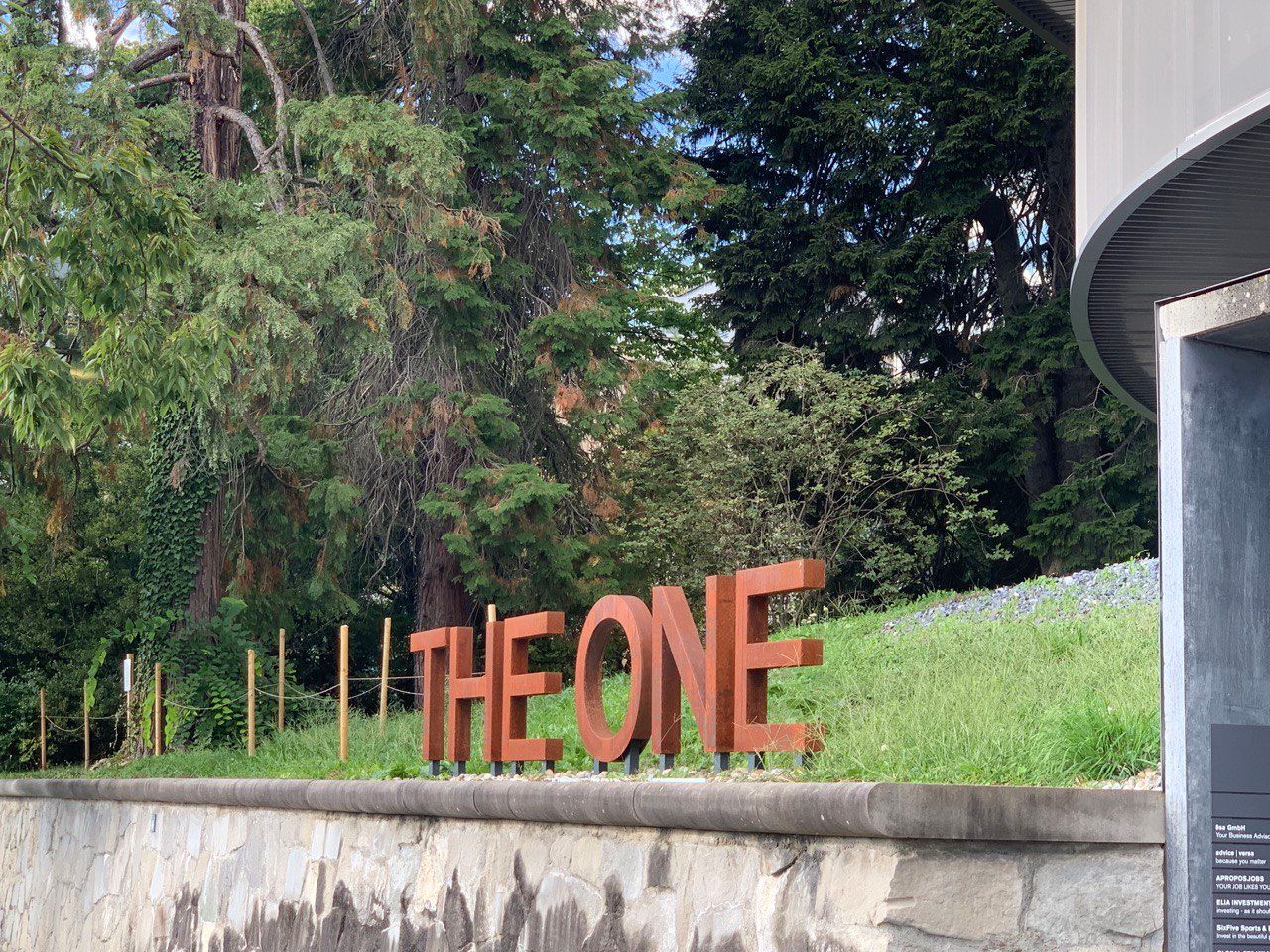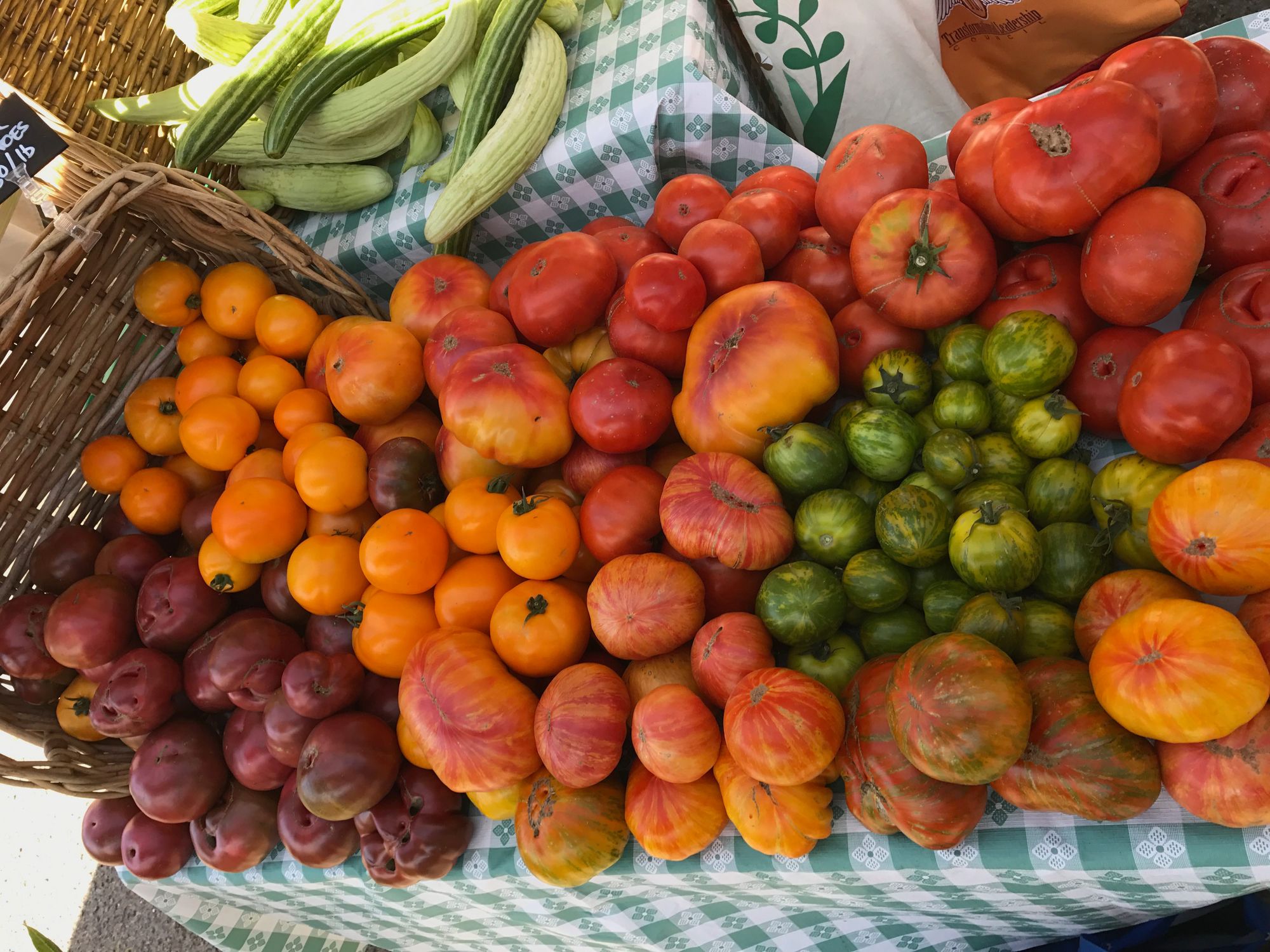Plex: 21 September 2022
News and views from around the Plex.

The Biweekly Plex Dispatch is an inter-community newspaper published by Collective Sense Commons on first and third Wednesdays of each month. Price per issue: 1 USD, or your choice of amount (even zero).
In This Issue
- SenseCraft Update
- Climate Correspondent: Ken Homer
- Ten Guiding Ideas About Collective Intelligence
- At the Farmers' Market: Lycopene, Carotenoids, and Anthocyanin
Editor's note: This issue of BPD has fewer updates than I would like, but I still think you'll like each of these updates. My special appreciation to Charles, Ken, and Jack for their contribution to this issue. – Pete

SenseCraft Update
by Jack Park
We have had a lot of help from Richard Hammond in thinking about how our messaging should emerge. More recently, Jonathan Sand joined our CSC Agora “SenseCraft dev” channel, opening with questions about how SenseCraft might serve his needs to bring online his Civilization 2.0 game; those conversations morphed into a deep dive into what “conversational literacy” means.
Actually, that term gives terrible google, but when Jeff Conklin said it, the context said it all. It goes like this: When a bunch of people hold forth in a conversation, most often, the conversation entails poor grammar, ambiguity all around, people not listening to each other, wandering off topic, and so forth.
The IBIS conversation facilitation system was invented as a way of pulling useful information out of rambling, often warring conversations. Jeff Conklin took IBIS from the original paper to conference rooms. He taught courses in facilitation, which is where he said that people could not do IBIS online in free form owing to a lack of conversational literacy.
We see conversational literacy in practice in Jerry's meetings and Zooms, and in WorldCafes. But, how can you let people do IBIS conversations online given they lack -- in general (let's be clear: most of “Jerry's kids” would do well) sufficient conversational skills?
I saw some weak evidence of this in the ForesightEngine and MMOWGLI online IBIS-like quests. In general, the number of impolite game moves was very low, mostly because those who would sign up for an IFTF.org quest, or one run by the U.S. Navy, were already pretty literate - conversation wise.
Still, given that each player could make game moves alone, the signal to noise ratio in those quests was not what it could have been, even though there were many truly great game moves.
The present implementation of SenseCraft is that of a Quest-Guild-based RPG, modeled a bit after World of Warcraft, but having nothing to do with war. Guilds - not individuals - make game moves, which consist of conversation nodes added to a conversation tree - the Quest.
Game moves are created in private rooms which serve as a kind of apprenticeship opportunity for guild members. They can earn badges and “level up” to the ability to play the Guild Leader role and eventually spawn their own guilds.
What transpired from those conversations at CSC is that Jonathan joined the TopicQuests slack and started generating his own variants of our user's manuals.
I think the story is this: slowly, we are seeing progress, and indeed evolution of our thinking, vision, and platform.
Climate Correspondent: Ken Homer
A new semi-regular item about living with extreme climate events. Send Pete an email when you want to tell us about extreme weather where you are.
We’ve had quite the roller coaster ride here in the Bay Area in the last two weeks. After a blessedly cool summer the mercury climbed to the highest I’ve ever seen it around here in the first week of September. I got a reading on my patio of 107ºF.
Less than two miles away as the crow files, the town of Ross recorded 112º and, a little more than an hour north of me, the town of Calistoga saw the unbelievable temp of 117ºF!
For the first time in my more than 30 years in California, the temps did not drop after sunset as they usually do, but stayed high until well after midnight - making sleep elusive and fitful for the five days of baking we endured. (I am not complaining, compared to many other parts of the Northern Hemisphere, we got off easy).
Once the heatwave passed, we went back to our normal temperature range for September for a few days. Then, this past weekend, we were treated to an out of season rainstorm - our rainy season normally runs from late October to early April. Local precipitation as noted by our water district was 1.47 inches.
This is a welcome event as it will suppress the immediate fire danger, although it is not enough moisture to end fire season. We are now back to above normal temps which will rapidly dry out the vegetation placing us back in the zone of high fire danger.
Sadly, the extended outlook for the winter does not bode well. If the modeling is accurate, we can expect a dryer than normal winter.☹️
Climate change, global warming, global weirding, or whatever you want to call it, is most definitely happening now...
Ten Guiding Ideas About Collective Intelligence
by Ken Homer
1. People and organizations have within them the wisdom and intelligence to successfully confront the challenges they’re facing.
2. Group intelligence and wisdom can’t simply be summoned on command, because it does not exist in the minds of the individuals who make up the organization. Collective intelligence/wisdom is emergent, it lies (mostly) dormant in the relational spaces between individuals.
3. Establishing relationships of trust and mutual respect is a prerequisite to evoking and accessing collective intelligence and wisdom.
4. Collective wisdom is accessed, applied, and refined through a process of structured conversations that begin by including all people involved. When voices are excluded, the system suffers from missing intelligence that could be the difference between success and failure.
5. Dissent, when welcomed and examined for validity, is a creative force.
6. Knowing which process to use for which phase of the conversation is crucial to your success. Different kinds of conversations and different conversational structures or processes, i.e., Collaborative Conversations, World Cafe, Open Space, Future Search, Appreciative Inquiry, Liberating Structures, etc., are required for coping with the complexity of various kinds of predicaments, such as problems, messes, or wicked messes.
7. Evoking collective wisdom and developing practical intelligence is hard work; it requires careful planning and facilitation, as well as willingness operate from a genuine space of “not knowing.” However, the effort is worth it. Skillfully coordinated collaboration yields amazing results that people take ownership for.
8. The only competitive advantage that is truly sustainable is to work on making ALL of humanity better able to live well on Earth for as far into the future we can imagine.
9. The world comes alive with possibility when we can shift from seeing it as “a set of problems out there” to a “set of concerns we all share.”
10. People grow in the direction of the questions they ask. Don’t ask what’s wrong and who is to blame, ask: What's important here? and Who cares about these things? (This bit of wisdom is attributed to David Cooperrider, the originator of Appreciative Inquiry.)
What would you change or add to this list?
At the Farmers' Market: Lycopene, Carotenoids, and Anthocyanin
by Ken Homer




Thank you for reading! Next edition will be published on 5 October 2022. Email Pete with suggested submissions.
My special appreciation to Charles, Ken, and Jack for their contribution to this issue. – Pete